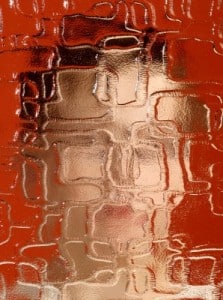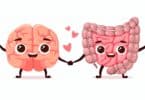
Approximately 1% of all children are thought to have autism today, and boys are more likely to have it than girls. A number of researchers have dedicated their time and their resources to help us better understand autism. Yet, as it stands, there is still no cure. That all may change, however, thanks to the discovery of neuroligin-3 loss.
Neuroligin-3 is a gene that helps in the formation of synapses, structures found all throughout the body. Synapses pass electrical and chemical signals from one cell in the body to another. Without the gene neuroligin-3, signals transmitted through the synapses are impaired, specifically the plasticity and function of the neuronal circuits, according to Professors Peter Scheiffele and Kaspar Vogt at the Biozentrum of the University of Basel.
What’s more, impairments in plasticity and function of the synapses have been associated with an increased output of a neuronal glutamate receptor. This receptor is in charge of regulating the signal transmission between neurons. Over time, the excess of this receptor disrupts the brain function, disrupting the learning process.
Through their research, the team at the Biozentrum of the University of Basel found that mice could be genetically altered to exclude the neuroligin-3 gene. These mice exhibited behaviors similar to those found in humans with autism. After further examination, researchers found fault in the synapses communication of these mice. What was most important about this study, however, was that the team was actually able to find a way to reverse the impaired development of the neuronal circuit in the brains of these mice by reactivating the production of neuroligin-3.
Once the neuroligin-3 production was reactivated, nerve cells reduced excess production of the glutamate receptors; the levels returned to a production considered to be “normal.” Once the receptor levels returned to normal, all autistic structural defects in the brain disappeared. In a sense, the mice were “cured” of their autism.
The study, published in the medical journal, Science, suggests that it is possible to target the development of drugs that could reduce the glutamate receptor levels. This could, in theory, reverse the effects of autism, or possibly even stop it from occurring altogether.
I’m not sure I would want a cure for my son. While I can’t speak for everyone, I am personally thankful for my son’s autism. It may sound a bit strange, but being a mother to an autistic child has helped me in so many ways. It has helped me to not judge other parents because, reality is, you never know what is happening in the life of another parent or what they are dealing with. His being autistic has helped me to be a more patient mother to him and my other children (although I am still working on that one!). He has helped me to see wonder in the small things in life that I often ignored before. Maybe his viewpoint would be different, but I would hope not. While he is on the higher end of the spectrum, (and I know that does make a difference as far as what we deal with on a daily basis) I believe everyone has their “hang-ups” and impairments.
What do you think? How would you feel about a cure for autism? Has parenting an autistic child changed your life? If so, how so?
Related Articles:
- Pretend Play May Not be as Important as Previously Thought, Researchers Say
- Could Toddler Tantrums Help Identify Social or Mental Health Issues Early On?
- Pattern and Severity of Facial Deformities and Brain Abnormalities in FAS Linked to Gestational Age of Consumption







A cure could be a mixed blessing. For high functioning people on the spectrum it would help them socially etc, but sometimes the different way of thinking can sometimes be beneficial. In some they suspect had it it may have helped them bring scientific break throughs especially when combined with the dedication that being obsessed about the subject can bring. Some low functioning Autistics have a mega talent (savant ability) they wouldn’t have if they weren’t Autistic. On the other hand, Autism can cause major difficulties for people.